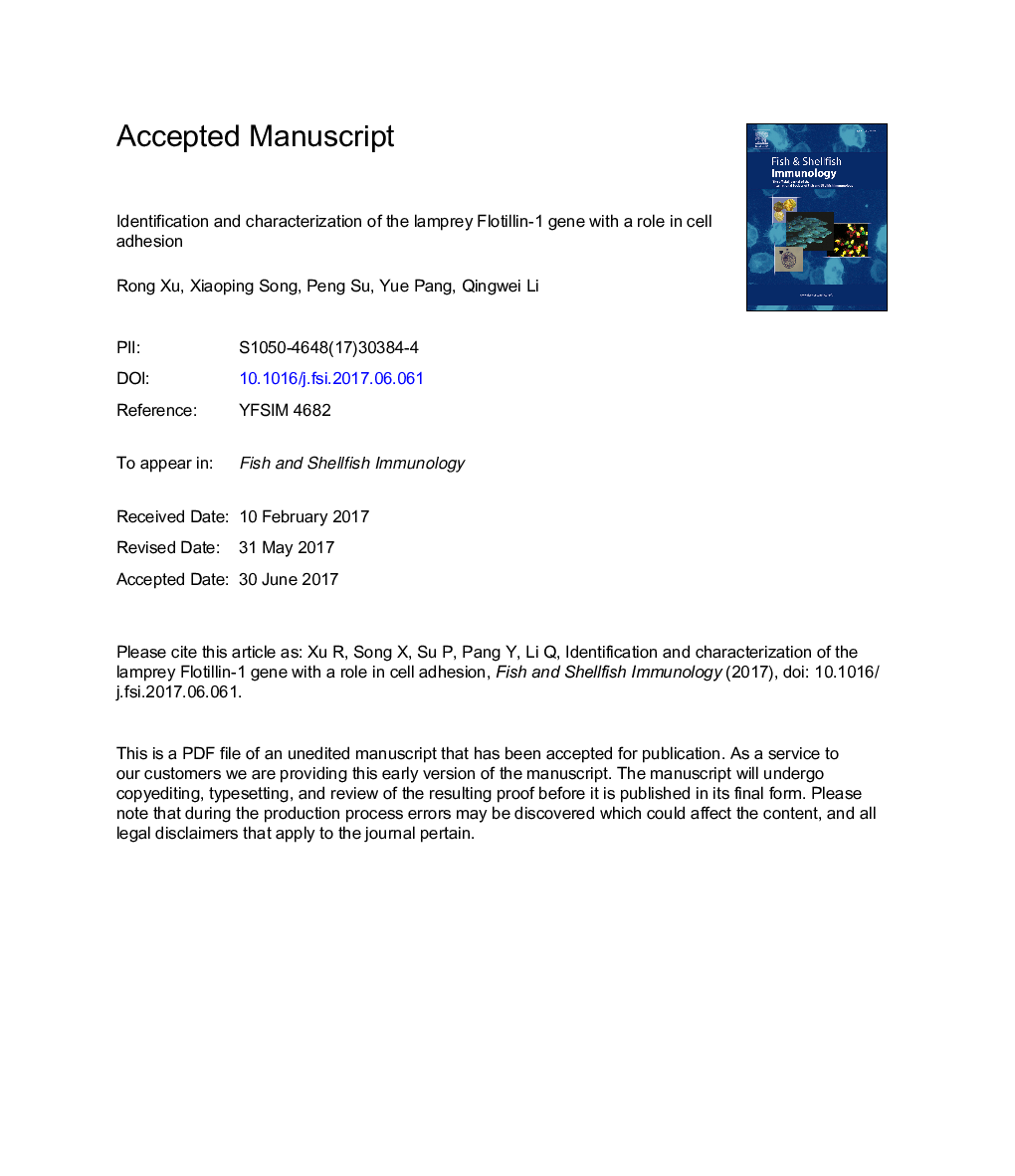| Article ID | Journal | Published Year | Pages | File Type |
|---|---|---|---|---|
| 5540363 | Fish & Shellfish Immunology | 2017 | 29 Pages |
Abstract
Flotillin-1 is a kind of localize into specific cholesterol rich microdomains in cellular membranes and highly conserved lipid rafts marker protein widely distributed in animals and plants. It provides a platform for the reaction of many proteins in signal transduction, as scaffolding plays an important role in transmembrane signaling and cell adhesion. Here, Flotillin-1 protein from lamprey was identified and characterized (designated as L-Flotillin-1). After a partial cDNA sequence of L-Flotillin-1 was identified in a lamprey supraneural body cDNA library, the full-length cDNA was obtained using 3'- and 5'-rapid amplification of cDNA ends (RACE). L-Flotillin-1 encodes 424 amino acids and contains a prohibitin domain and a flotillin repetitive area. The L-Flotillin-1 protein was primarily distributed in kidney, supraneural body, gill, heart, liver and intestine via real-time PCR and immunohistochemistry assays. Immunofluorescence and western blot results showed that L-Flotillin-1 was considered to be used as a marker protein of lamprey lipid rafts and exosomes. Furthermore, overexpression of pEGFP-N1-L-Flotillin-1 induced the up-regulation of vascular cell adhesion molecule-1 (VCAM-1) and intercellular cell adhesion molecule-1 (ICAM-1) mRNA levels. These results indicated that the L-Flotillin-1 gene encodes Flotillin-1 protein that was used as a conserved marker protein and may play an important role in cell adhesion, providing clues for understanding the universal functions of Flotillin-1 proteins in other species and suggesting that these proteins could serve as pattern recognition molecules in immunotherapy. We revealed that Flotillin-1 protein of lamprey overexpression in human cells plays a prevalent role in cell migration and provide new thought of treatment to diseases.
Related Topics
Life Sciences
Agricultural and Biological Sciences
Aquatic Science
Authors
Rong Xu, Xiaoping Song, Peng Su, Yue Pang, Qingwei Li,
